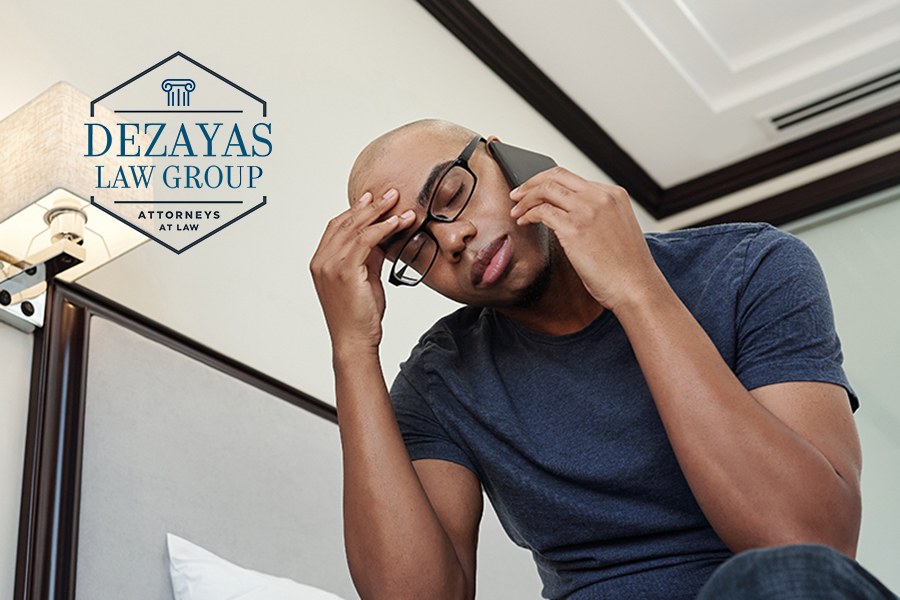You may not have considered bankruptcy. But, if you’ve experienced unexpected, extreme financial shock, filing bankruptcy may be the right solution for you.
Debt Defense
The coronavirus pandemic has hurt many people financially, and some have found themselves buried in debt.
Some creditors have not been generous with repayment flexibility. Of course valid reasons exist for not paying off a credit card or other debt, and many are defensible under the law.
The attorneys at DeZayas Law Group are experienced in defending clients against lawsuits or judgments from creditors. Debt defense takes different forms for each client, but we can often help negotiate settlements, resolution of the debt, or a reprieve for heads of households. It’s always advisable to contact an attorney to evaluate the creditor’s case against you and help identify the best steps for you.
As Floridians have struggled over the past year, credit card debt has become an even bigger problem. Credible, legal defenses when sued for credit card debt may include:
You have not been credited for a payment made.
If you have paid the debt, or a portion of it, and your records indicate you have not been credited for the payment, you can use this defense for not having paid.
You are disputing the amount owed.
Are you being sued for more than you believe you owe? In that case, it is the plaintiff’s (your creditor’s) responsibility to prove you owe the amount for which they are suing. This includes proving the principal, interest, collection and attorney fees are accurate, were specified in your agreement, and were legally charged to you. If those records aren’t presented, you can be relieved of the debt.
You were a victim of identity theft or mistaken identity.
Identity errors cannot be held against you in collection lawsuits. If someone has stolen your name and personal information to open credit cards or if your identity has been confused with a person with a similar name, you should notify the creditor but are not obligated to pay those charges. Again, to collect, the plaintiff must prove that you authorized every charge for which they are suing you. Seek legal advice, and do not agree to a settlement if your identity has been stolen or mistaken.
You were an authorized user on an account but not the responsible party.
Are you listed as a co-signer or authorized user on someone else’s card? The difference is significant, regarding your obligation for it. If someone simply gave you permission to use their card, the credit card company cannot hold you responsible for the payment. However, if you are a co-signer on the card, you have effectively agreed to be jointly responsible for the debt. Be sure to know your legal status on the credit cards you use.
The statute of limitations has run out on collection.
The statute of limitations is the time limit for a creditor to file a lawsuit against you, starting from the last time you made a payment. In Florida, the statute of limitations is usually 5 years. Once that time period has lapsed, the court system will not hold you responsible for repayment. However, even a small payment restarts the statute’s calendar, so you must know the date of your last payment before considering this defense.
You have filed for bankruptcy.
If the debt for which you are being sued was part of a previously declared bankruptcy, you no longer owe it. (And if your debt situation warrants it, filing bankruptcy could be a separate option to discuss with your attorney.)
You do not have a business relationship with the creditor.
If you are being sued by someone who purchased your debt from the original creditor, you can challenge their right to sue you. The debt buyer may not have what is called “standing” to sue you, since you did not agree to a contract with them directly. To argue this successfully, the debt buyer must prove they have a contract that specifically mentions your debt. If they cannot produce this evidence, their lawsuit will be dismissed.
None of these situations are absolutes, and you will be best served by obtaining legal advice. The DeZayas Law Group is experienced in defending our clients against aggressive debt collectors. Court judgments against you never go away, so it’s important to address the problem by attempting resolution, without being forced into an unrealistic payment plan.
DeZayas Law Group is central Florida’s all-inclusive law firm offering professional services with the experience and track record you need to handle your legal representation. For more information or to learn more about our attorneys, call us at (863) 904-4710.

